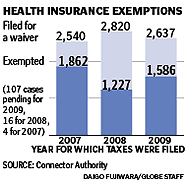We're now learning that ObamaCare is a trojan horse for political payback to unions and companies who support President Obama:
Facing questions from both parties in the Congress, the Obama Administration has now revealed how it has spent over $1.7 billion on part of the Obama health law, known as the Early Retiree Reinsurance Program.
This plan is intended to help companies pay the cost of health care for their early retirees, but lawmakers say it is wrongly benefiting companies like AT&T and General Electric, who have billions in profits on their bottom lines.
Here is the list of unions, companies, state and local governments and other business entities who received money under the Obama health law for their early retiree health programs:
United Auto Workers Retiree Medical Benefits Trust: $206,798,086
AT&T, Inc.: $140,022,949
Verizon Communications Inc.: $91,702,538
Public Employees Retirement System of Ohio: $70,557,764
Teacher Retirement System of Texas: $68,074,118
Not only does ObamaCare pay off big companies and big unions, but let us not forget that it granted waivers to big businesses and big unions too. The number of waivers that the Obama Administration has granted is over 1,000 and climbing. Granting a waiver on the basis of political payback is a form of payment since these organizations will not suffer the burden of operating under ObamaCare and will result in huge financial savings for them. In effect, these organizations are getting rewarded twice for their political loyalty. These organizations are getting money from Obama's administration and they're getting a huge financial savings by obtaining the wavier from the Obama Administration.
The lesson that Big Businesses and Big Unions have learned from ObamaCare is this:
"Companies now have a crystal-clear example that if they pony up a few million dollars to Washington politicians, they can expect to see their money returned to them multiplied many times. Most of us who have watched Washington politics know this has been true for a while but I can’t recall a time when our government was this blatant about paying back its corporate and union supporters."
Another problem with ObamaCare is how arbitrary these waivers are since there is no open disclosure of how the decision was made to grant these waivers or on what basis it was made. So far, it appears to be made on an arbitrary basis since the Secretary of Health and Human Services and those in that department, under ObamaCare, gets to determine who gets the waivers and who doesn't:
"The entire act is filled with the phrase, “The secretary shall determine” or equivalents, meaning that HHS can essentially make up and change rules as they go along. No one knows what to expect from this vast expansion of regulatory power precisely because it’s based on executive whimsy rather than sound and objective law. Apart from all other aspects of ObamaCare, this is the most destructive quality in regard to the rule of law — and Congress had better act to stop it from proceeding for that reason alone."
Laws are supposed to provide uniformity in its application. Yet, under ObamaCare, it lets the Department of Health and Humans Services choose the winners and losers of obtaining the waivers in a totally inappropriate manner.
In contrast, RomneyCare is a straightforward program that aimed at reducing the number of people who are uninsured in the state of Massachusetts. The program is a success. Massachusetts is the number one state that has the lowest percentage of uninsured in the country.
As far as I know, RomneyCare does allow people to request waivers from RomneyCare on the basis of financial hardship:
Moreover, unlike ObamaCare, RomneyCare does not give financial awards and waivers to big business and big unions as away of political payback for past or future political support. The agency that grants such waivers is completely independent of the Massachusetts Governor's office. And that is another big difference between RomneyCare and ObamaCare.
For more differences between RomneyCare and ObamaCare, I suggest you check out the small and big differences between these two men's health care plans.
As a result, we know how the waivers are granted and on what basis in Massachusetts. That is a big difference between RomneyCare and ObamaCare.Massachusetts regulators granted more exemptions last year to residents who said they could not afford the health insurance required by the state, waiving the tax penalty for more than half of those who appealed, according to state data.Of the 2,637 people who applied, 63 percent received an exemption with 107 cases pending, up from 44 percent the previous year.
State officials said they excused the majority of waiver applicants in large part because of the protracted sour economy, which made insurance unaffordable for more people. Under the 2006 state law that requires most residents to have coverage, regulators have significant latitude to authorize waivers by taking into account factors such as a home foreclosure.The number of people seeking exemptions in 2010 was about the same as in 2009, and state figures show that roughly 98 percent of residents were insured last year.
Moreover, unlike ObamaCare, RomneyCare does not give financial awards and waivers to big business and big unions as away of political payback for past or future political support. The agency that grants such waivers is completely independent of the Massachusetts Governor's office. And that is another big difference between RomneyCare and ObamaCare.
For more differences between RomneyCare and ObamaCare, I suggest you check out the small and big differences between these two men's health care plans.

No comments:
Post a Comment